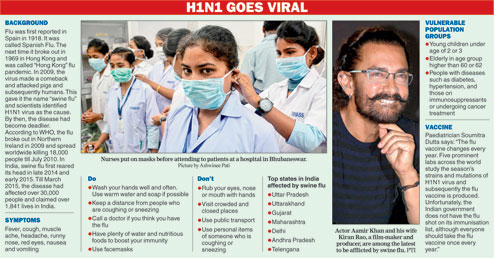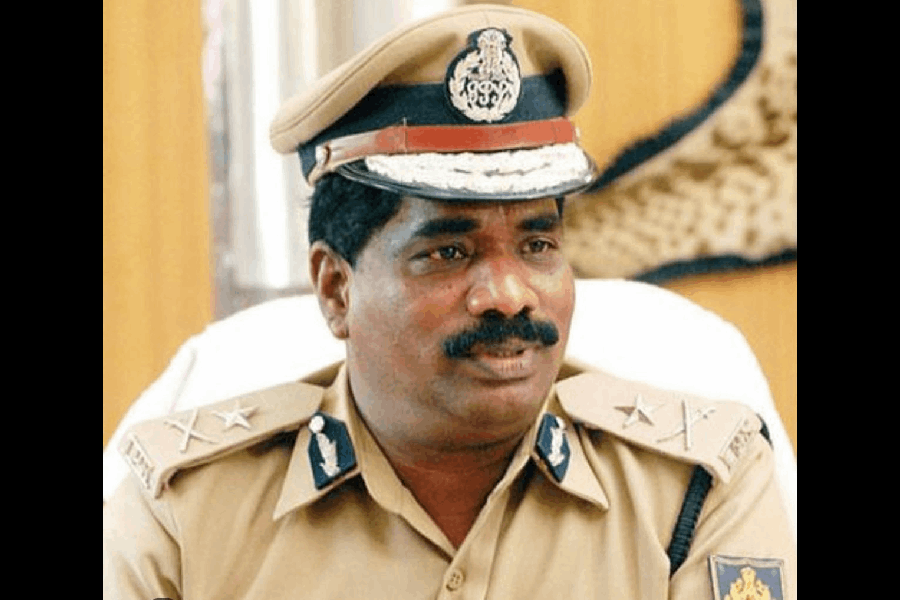Bhubaneswar, Aug. 8: Swine flu, which the WHO had tagged as a seasonal phenomenon, is spreading its tentacles in unfamiliar times forcing people here to take precautionary measures. The city registered the season's first swine flu death last Saturday and the toll went up to two today.
One swine flu death was also reported from Cuttack today. A 42-year-old woman died today at SCB Medical College and Hospital in Cuttack, while a 48-year-old died at a private hospital in Bhubaneswar.
With the H1N1 virus spreading in the city and the state, The Telegraph attempts to trace its roots and help people with the steps to keep the virus at bay.
Other than the three deaths so far, the state till today has registered 59 positive cases of swine flu. The first victim died at a private hospital here on Saturday while undergoing treatment. The designated lab for testing the swabs - the Regional Medical Research Centre (RMRC) - has so far tested about 230 samples.
Medical experts say that swine flu is a seasonal strain of influenza that usually occurs in winter when temperatures fall. The reason behind the occurrence of the disease now - when it's mid-monsoon - has triggered a debate on whether swine flu is still a seasonal phenomenon.
After the outbreak of the flu in 2009, the World Health Organisation (WHO) had declared the deadly disease a seasonal influenza that occurs commonly during winter. However, the spread of the flu this year in the state tells a different story.
"The H1N1 virus rears its head in winter when temperatures are low. But this year, the disease has surfaced in monsoon because of the frequent fluctuation in the mercury level. The mercury is neither high nor low as of now which is providing favourable conditions for the virus to grow and attack," said director, health services, Kailash Dash.
The state is recording an average maximum temperature of 28°C and a minimum temperature of around 26°C.
"The virus dies at a temperature of at least 30°C. However, with adequate precautions, we can easily avoid getting the disease," said Dash.
Realising the seriousness of the situation, the health and family welfare department has directed all city district level health-care facilities to be prepared to treat suspected swine flu patients. The department has also made treatment free for all.
Accordingly, Capital Hospital here has opened a 10-bed special swine flu isolation ward. Patients with suspected swine flu will be directly taken to the special ward for treatment. The All India Institute of Medical Sciences (AIIMS) has not opened any special ward, but have an adequate stock of medicines and isolated beds ready to treat any swine flu patients.
Other major or minor private-run hospitals have also made provisions to treat patients affected by H1N1 virus. "We have stocked the medicines and provided safety kits to doctors and paramedics deputed to treat such patients. Many people are approaching us with symptoms of swine flu. We are treating them as well as informing the government about the patients," said an administrator of a private hospital here.
AIIMS director Gitanjali Batmanabane said the people had more awareness about diseases now.
"People are using masks and taking other precautionary measures to save themselves from the viral attack. People with prolonged respiratory disease, diabetes and lung-related diseases should be more cautious than others as the chances of morbidity is higher for them," said Batmanabane.











